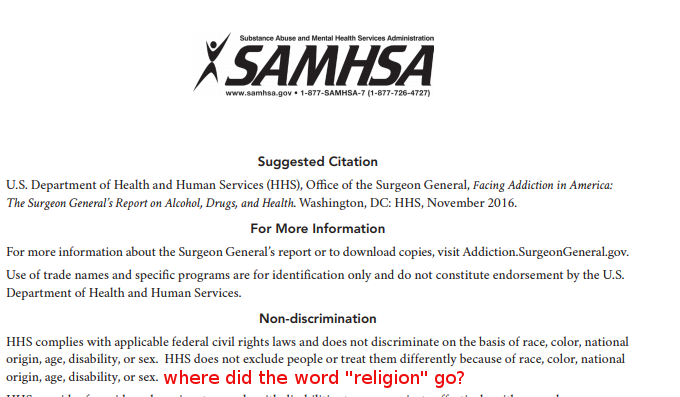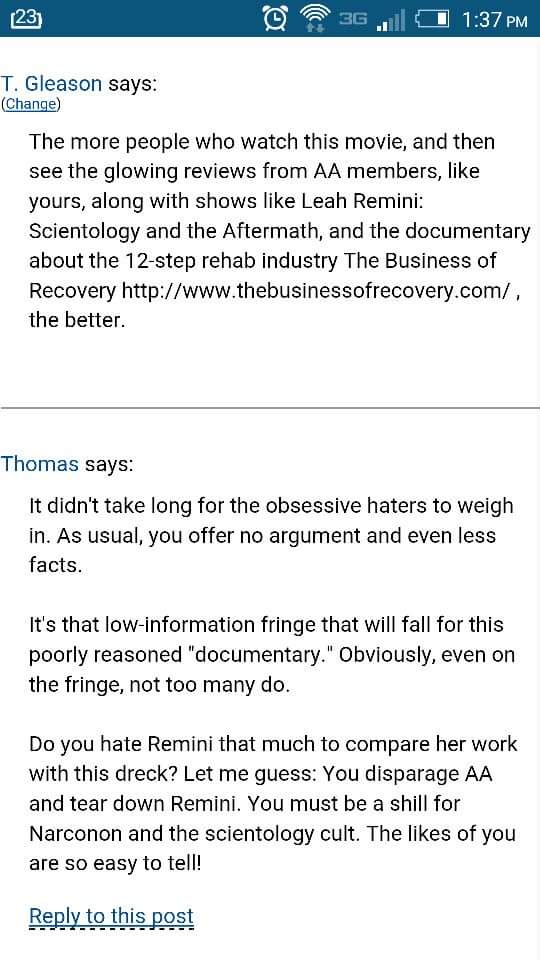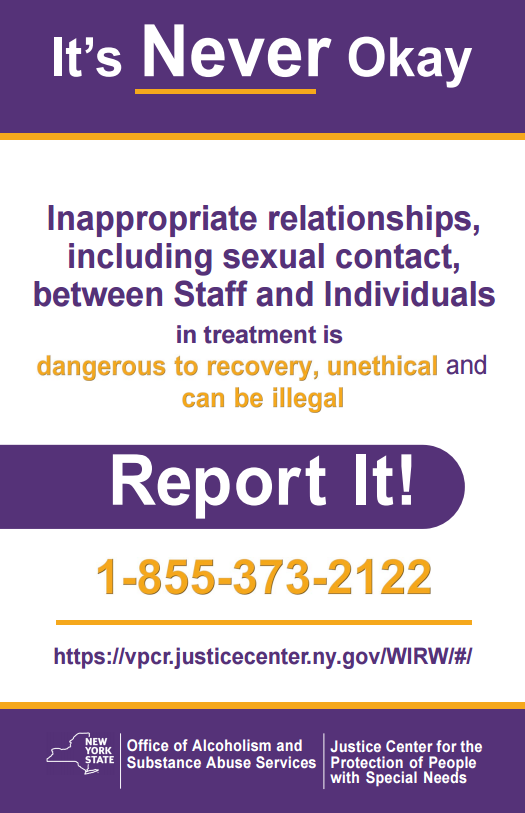I noticed a few things about FACING ADDICTION IN AMERICA, The Surgeon General’s Report on
Alcohol, Drugs, and Health.

1. The non-discrimination notice (page 4) from the Health and Human Services Office for Civil Rights leaves out the word ‘religion’. On the OCR’s website, religion is mentioned, but in this report, they strangely leave that word out. “HHS complies with applicable federal civil rights laws and does not discriminate on the basis of race, color, national origin, age, disability, or sex. HHS does not exclude people or treat them differently because of race, color, national origin, age, disability, or sex. ”
You can still file a complaint about religious coercion or discrimination here, even if you are led to believe from this report that the Department of Health and Human Services is exempt from complaints about religious coercion or discrimination.
2. The very relevant issue of religiosity in Alcoholics Anonymous (and all 12-step programs) is completely avoided. The report only has this to say, which most state Supreme Courts have disagreed with: “Within some communities, recovery is seen as being aligned with a particular religion, yet in other communities such as the AA fellowship, recovery is explicitly not religious but is instead considered spiritual.”
This is blatantly disregarding a very serious and very public issue with 12-step programs, which is that they are religious activities even while they continue to deny being religious activities. This is not the only thing that 12-step programs lie about…
3. The report includes blatant misrepresentation of statistics, such as: “About 50 percent of adults who begin participation in a 12-step program after participating in a treatment program are still attending 3 years later. Rates of continued attendance for individuals who seek AA directly without first going to treatment are also high, with 41.6 percent of those who start going to meetings still attending 9 to 16 years later.”
If this were true, then there would be a lot more than ~1.3 million people in AA, because every year around 1 million people are forced into AA through ‘treatment’ programs like drug court, rehab, mental health professionals, EAP programs. In fact, the dropout rate is extremely high, and also, the people that are in AA are not necessarily getting better. They may not even want to be there, in many cases, and attendance does not equal sobriety.
4. The report tries to make the ‘recovery movement’ a collection of shared values and beliefs, saying: “Some people who have had severe substance use disorders in the past but no longer meet criteria for a substance use disorder do not think of themselves as operating from a recovery perspective or consider themselves part of a recovery movement, even if they endorse some or all of the beliefs and values associated with recovery.” This is like how the movie The Anonymous People makes the 12-step community look much bigger than it is, by speaking for the vast majority of people who reject AA but do not reject ‘getting better’. Getting better often involves deprogramming from AA cult brainwashing and extricating themselves from abusive or controlling sponsors or treatment rackets. The values and beliefs are described as:
* People who suffer from substance use disorders (recovering or not) have essential worth and dignity.
This is not actually how the recovery movement works. People who are not ‘in recovery’ (in AA, according to AA traditions, or who deny being part of the ‘recovery movement’) are regularly shunned and insulted by AA members. It’s Tradition Three, in fact. You can see clear examples of this by the refusal of 12-step communities (and AA World Services itself) to acknowledge the worth and dignity of documentaries clearly concerned with helping people even if it means criticizing AA, such as The Business of Recovery and The 13th Step.
* The shame and discrimination that prevents many individuals from seeking help must be vigorously combated.
A whole lot of people *have* been to treatment and don’t want to be converted to the 12-step religious movement (Twelve Step Facilitation involves two goals: “Acceptance and Surrender” see the Project MATCH PDF manual for TSF.)
* Recovery can be achieved through diverse pathways and should be celebrated.
The ‘recovery movement’ has a very specific definition of what Recovery is. It always means acceptance of AA (as rejection of AA is seen as ‘misunderstanding’, ‘negativity’, ‘whining’ rather than informed decision-making). People who do not consider themselves as part of the ‘recovery movement’ do not accept that it is ‘many paths leading to AA’. In practice, the ‘recovery movement’ (NRAM), is about creating a culture of abstinence and growing more and more 12-step organizations that ‘facilitate’ 12-step involvement.
* Access to high-quality treatment is a human right, although recovery is more than treatment.
Again, this assumes that there is broad agreement that addiction is a lifelong disease which needs a lifetime of the 12-Step Program of Recovery to manage. There is NOT.
* People in recovery and their families have valuable experiences and encouragement to offer others who are struggling with substance use.
This is not necessarily true. There may be no value to what a person ‘in recovery’ has to offer someone who is struggling. The person ‘in recovery’ may never have really had a problem and may just like to control sponsees. A lot of families of people ‘in recovery’ have been discarded for the new AA family, and they may not encourage others to become born-again Christians shunning ‘enablers'; or they may actually have a grim prognosis for anyone using drugs, based on their dead family member who went through dozens of treatment programs.
5. One more example of misrepresentation (there are many): “A leading example of recovery-supportive houses is Oxford Houses, which are peer-run, self-sustaining, substance-free residences that host 6 to 10 recovering individuals per house and require that all members maintain abstinence. They encourage, but do not require, participation in 12-step mutual aid groups.”
Again, this is basically dishonest. The fourth tradition of Oxford Houses is: ” Oxford House is not affiliated with Alcoholics Anonymous or Narcotics Anonymous, organizationally or financially, but Oxford House members realize that only active participation in Alcoholics Anonymous and/or Narcotics Anonymous offers assurance of continued sobriety. further … “Every Oxford House member attributes his sobriety to Alcoholics Anonymous and/or Narcotics Anonymous. Each Oxford House member, as an individual, considers himself a member of AA and/or NA. Without that, sobriety would be short-lived.“. You also lose basic human rights at an Oxford House; you can be immediately evicted for any ‘slip’ (which you’ve been learning is a disease you have no control over…). The first time I went to a psychiatric hospital, I roomed with a man who was just kicked out of his sober home for getting drunk.
“It is not in the rules,” McGuire says, “but we all accept that the only way to stay sober is through a 12-step program, and we hold one another accountable. If someone is not going to meetings, they will be confronted.”





